...and who is protecting that dream? Those in power.
AANGRY WHITE MEN
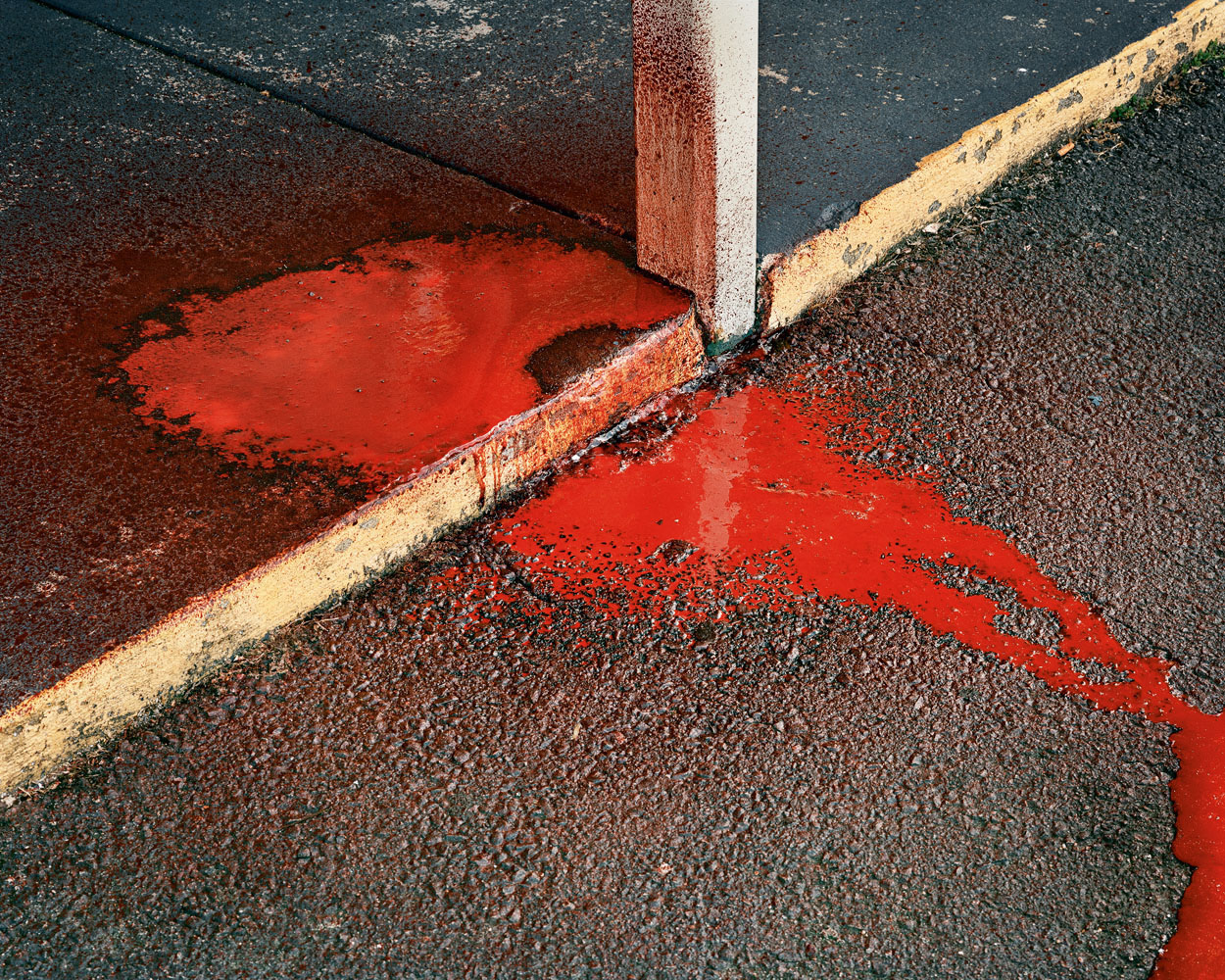
Shane Rocheleau, Site of the Death of Edward Jones, 2014 from YAMOTFABAATA
Shane Rocheleau Jason is a thoughtful and prolific artist; I admire both his work and work ethic tremendously. He’s also the person behind a new imprint called Gnomic Book. My book is Gnomic's latest project.
After several months of wrestling my project into a thing we love, Jason and I took a red-eye from JFK to Frankfurt and then drove to Altenburg. We spent the day and night adjusting to the time zone by sampling local food and beer at several fine German establishments and a Kabab joint to boot.
At 7 a.m. the following day, we headed to DZA—a company established in 1594 and located at 1 Gutenburgstrasse—to print the sheets for the book. The street name gave Jason some cursory comfort. We were escorted to the top floor, the fifth, and were given free rein of their cappuccino machine. I was nervous because I suspected everything might go wrong and the book would suck. We were surrounded by books of all shapes and sizes, and Jason consumed them while I consumed way too many cappuccinos and paced. After an hour, we were beckoned to see our first sheet. We hurried down the five flights of stairs to the bottom floor.
The sheet was perfect. Despite the cause for mid-level celebration, I was still anxious. So after we trudged back up the stairs, Jason suggested we begin the following conversation. He took out his cell phone and began recording.
After several months of wrestling my project into a thing we love, Jason and I took a red-eye from JFK to Frankfurt and then drove to Altenburg. We spent the day and night adjusting to the time zone by sampling local food and beer at several fine German establishments and a Kabab joint to boot.
At 7 a.m. the following day, we headed to DZA—a company established in 1594 and located at 1 Gutenburgstrasse—to print the sheets for the book. The street name gave Jason some cursory comfort. We were escorted to the top floor, the fifth, and were given free rein of their cappuccino machine. I was nervous because I suspected everything might go wrong and the book would suck. We were surrounded by books of all shapes and sizes, and Jason consumed them while I consumed way too many cappuccinos and paced. After an hour, we were beckoned to see our first sheet. We hurried down the five flights of stairs to the bottom floor.
The sheet was perfect. Despite the cause for mid-level celebration, I was still anxious. So after we trudged back up the stairs, Jason suggested we begin the following conversation. He took out his cell phone and began recording.
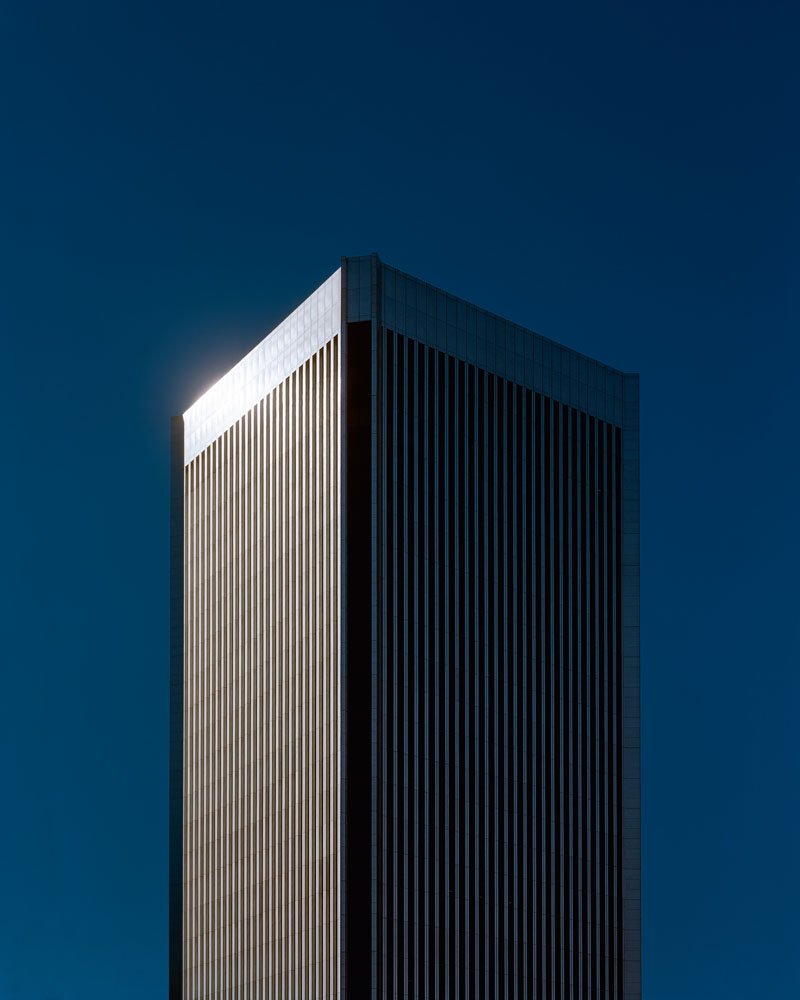
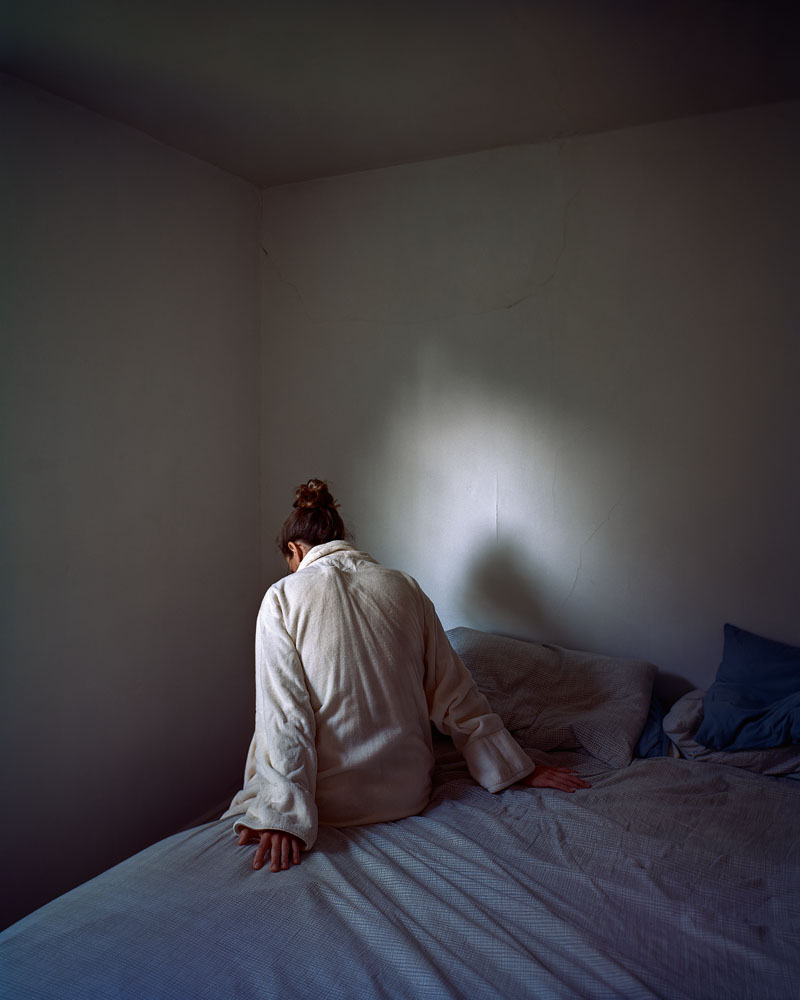
Shane Rocheleau (from left), Jo, 2015; Federal Reserve Building, Richmond, VA, 2016, (both) from YAMOTFABAATA
Jason Koxvold I’d like to talk about some of the themes that we are exploring photographically in our recent projects, so let’s start with the title of your book: You Are Masters Of The Fish And Birds And All The Animals. It’s an excerpt from Genesis, and your disillusionment with religion features prominently in the work. When did this disillusionment begin?
Shane Rocheleau I had to have been fairly young, and I think it began with confession. All of my confessions were really just me opening the register to hide the bank vault underneath my feet. And then the penance: “say ten Our Fathers”? I don't even understand how that's penance; it’s superficial.
Jason I’m interested in what you’ve said about that superficiality, and perhaps there is a parallel to that in the superficiality of the American dream—which is to say that as long as you believe in it, in the face of evidence that suggests otherwise, that you'll be OK.
Shane There’s a certain comfort living in the imaginary, but the thing is—and this is probably unfairly reductive—if you live in the imaginary, part of what that means is that you either don’t have much of an imagination, or you’re scared to use it—so you need the structure provided.
Jason Someone else's template.
Shane Right, so really the American dream and Christianity are really each templates, imaginaries that you put your faith in. And of course, faith is something that happens not in the face of facts, but in spite of them. So if you decide that’s your imaginary, then it's really difficult for anyone to convince you otherwise; perhaps that’s why the United States is the richest country in the world yet ranks so poorly in income inequality. The United States is worse off than, say, Germany or Norway, neither of whom has at the core their cultural narratives a fantasy of climbing the ladder. So in spite of the fact that almost no one really gets ahead—if you start off impoverished, generally speaking you stay impoverished—we invest in this myth that you can start at the bottom and end up at the top. While that may be true, isn’t it a zero-sum game? There has to be someone at the bottom, middle class wages are stagnant, and so there's really no net migration upwards. Yet, in spite of this evidence, of the extreme inequality and poor social mobility, our cultural narrative hasn’t really shifted. We believe it on faith.
Jason Absolutely. I’m interested in that idea of templates, that we choose to live within certain constructs—now that I have children, I'm constantly reminded that I am building their realities for them. Each decision I make affects the way they will perceive the world and the way they'll respond to it. These notions of freedom and the American dream are largely formed in the minds of children reciting the pledge of allegiance every morning to “the greatest country in the world.” We’re building that mythology in the minds of very young children.
Shane Rocheleau I had to have been fairly young, and I think it began with confession. All of my confessions were really just me opening the register to hide the bank vault underneath my feet. And then the penance: “say ten Our Fathers”? I don't even understand how that's penance; it’s superficial.
Jason I’m interested in what you’ve said about that superficiality, and perhaps there is a parallel to that in the superficiality of the American dream—which is to say that as long as you believe in it, in the face of evidence that suggests otherwise, that you'll be OK.
Shane There’s a certain comfort living in the imaginary, but the thing is—and this is probably unfairly reductive—if you live in the imaginary, part of what that means is that you either don’t have much of an imagination, or you’re scared to use it—so you need the structure provided.
Jason Someone else's template.
Shane Right, so really the American dream and Christianity are really each templates, imaginaries that you put your faith in. And of course, faith is something that happens not in the face of facts, but in spite of them. So if you decide that’s your imaginary, then it's really difficult for anyone to convince you otherwise; perhaps that’s why the United States is the richest country in the world yet ranks so poorly in income inequality. The United States is worse off than, say, Germany or Norway, neither of whom has at the core their cultural narratives a fantasy of climbing the ladder. So in spite of the fact that almost no one really gets ahead—if you start off impoverished, generally speaking you stay impoverished—we invest in this myth that you can start at the bottom and end up at the top. While that may be true, isn’t it a zero-sum game? There has to be someone at the bottom, middle class wages are stagnant, and so there's really no net migration upwards. Yet, in spite of this evidence, of the extreme inequality and poor social mobility, our cultural narrative hasn’t really shifted. We believe it on faith.
Jason Absolutely. I’m interested in that idea of templates, that we choose to live within certain constructs—now that I have children, I'm constantly reminded that I am building their realities for them. Each decision I make affects the way they will perceive the world and the way they'll respond to it. These notions of freedom and the American dream are largely formed in the minds of children reciting the pledge of allegiance every morning to “the greatest country in the world.” We’re building that mythology in the minds of very young children.
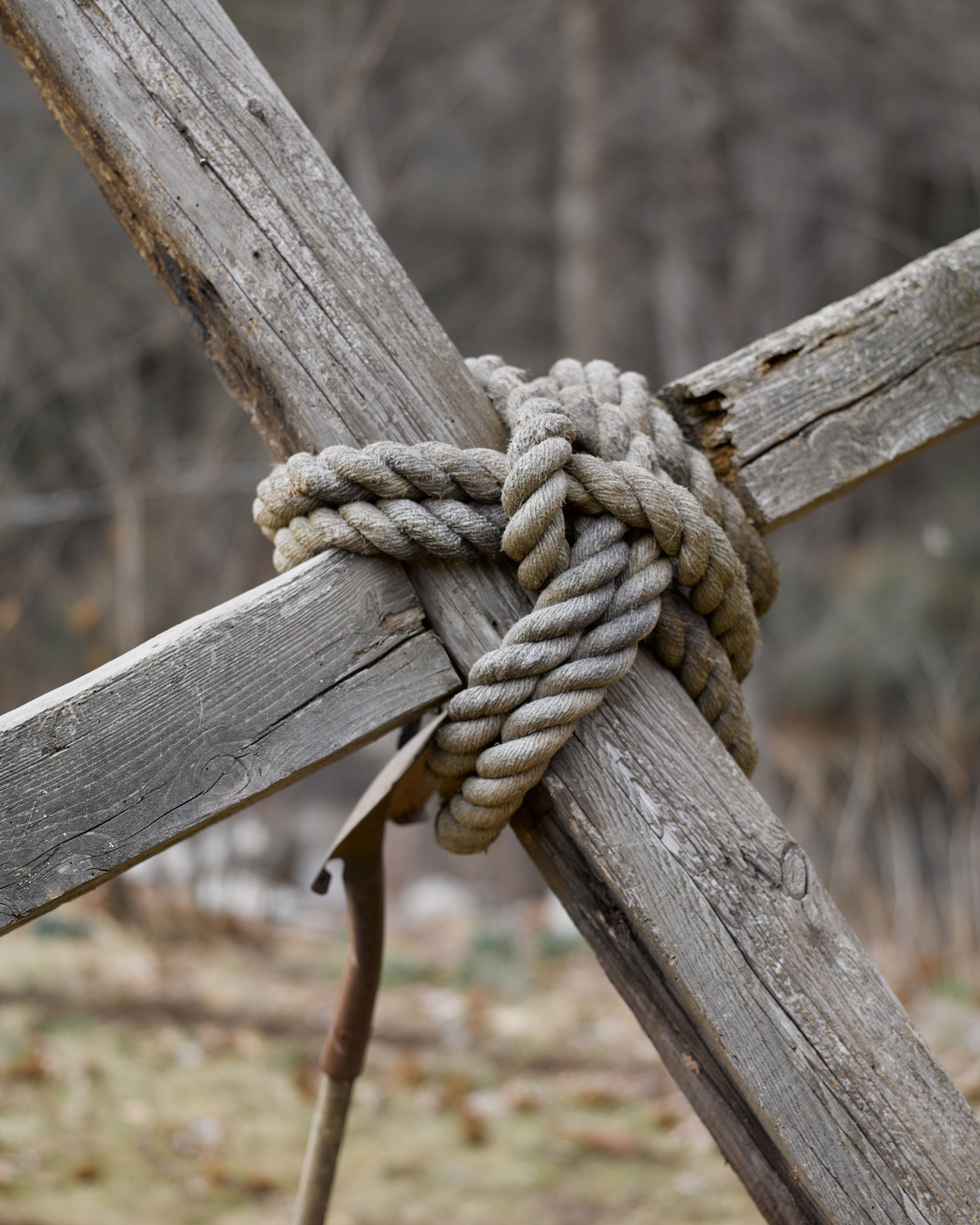
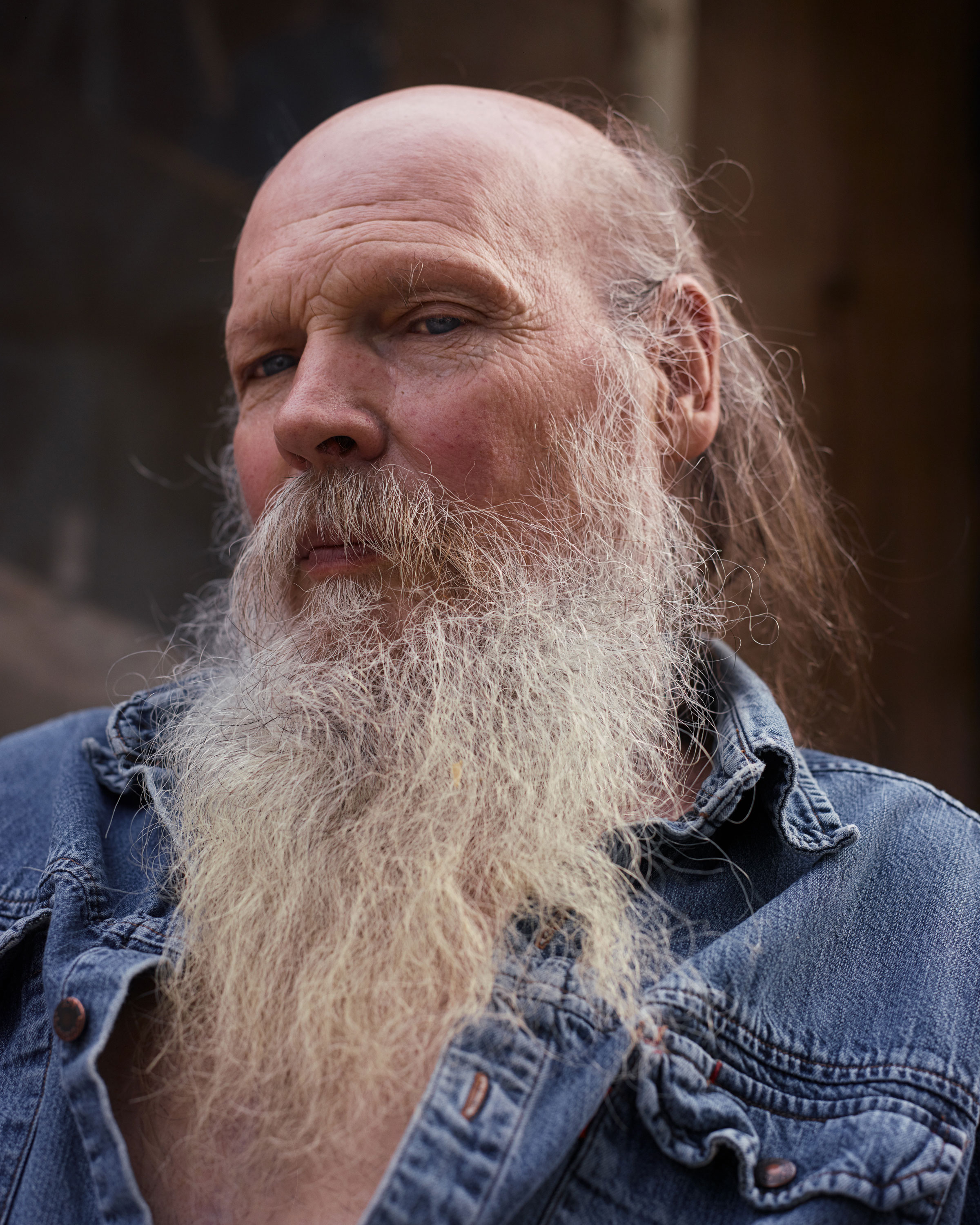


Jason Koxvold (clockwise from top left), Untitled, Napanoch, NY, 2016; Untitled, Napanoch, NY, 2017; Untitled, Napanoch, NY, 2017; Untitled, Ellenville, NY, 2017, (all) from Knives
But then for some of the characters in Knives, who then discover that these concepts were empty promises—does that result in the destruction of self-identity, when this thing that you always believed in isn't what it once was?
Shane Do you hear that from those characters in Knives? Do they articulate that they no longer have faith in that thing they once did? Is there a tension between the imaginary and the reality?
Jason Absolutely. In some of the discussion I observed, in online forums for knife aficionados that I researched, some of the characters in the book actually participated in those discussions a lot. Not only was there an absence of faith in the system that they had once trusted in, but the exact opposite was true: they now believe that there is a real-life government conspiracy to impoverish them, to send their work to China.
Some of the phrases they use to describe the Chinese people who are now making the knives that they once made, there is some kind of rage, and suspicion of the system of the way they were raised in.
Shane But the rage isn’t directed towards capitalism, is it?
Jason It's not. And that's what's so remarkable. There’s a simultaneous ability to hate the elite without understanding that the elites are...
Shane ...a product of capitalism and a product of the mythology of the American dream. It's almost like believing in a conspiracy is a way of protecting yourself from reality. And the reality that it's protecting the men from Knives from is that the mythology they’re invested in actually is nothing more than myth—but they're not divesting themselves of that mythology. Looking for conspiracies to explain their status in life actually gets around the fact that the thing that they need to rage against is the thing that they put their faith in. They should rage against capitalism.
Shane Do you hear that from those characters in Knives? Do they articulate that they no longer have faith in that thing they once did? Is there a tension between the imaginary and the reality?
Jason Absolutely. In some of the discussion I observed, in online forums for knife aficionados that I researched, some of the characters in the book actually participated in those discussions a lot. Not only was there an absence of faith in the system that they had once trusted in, but the exact opposite was true: they now believe that there is a real-life government conspiracy to impoverish them, to send their work to China.
Some of the phrases they use to describe the Chinese people who are now making the knives that they once made, there is some kind of rage, and suspicion of the system of the way they were raised in.
Shane But the rage isn’t directed towards capitalism, is it?
Jason It's not. And that's what's so remarkable. There’s a simultaneous ability to hate the elite without understanding that the elites are...
Shane ...a product of capitalism and a product of the mythology of the American dream. It's almost like believing in a conspiracy is a way of protecting yourself from reality. And the reality that it's protecting the men from Knives from is that the mythology they’re invested in actually is nothing more than myth—but they're not divesting themselves of that mythology. Looking for conspiracies to explain their status in life actually gets around the fact that the thing that they need to rage against is the thing that they put their faith in. They should rage against capitalism.
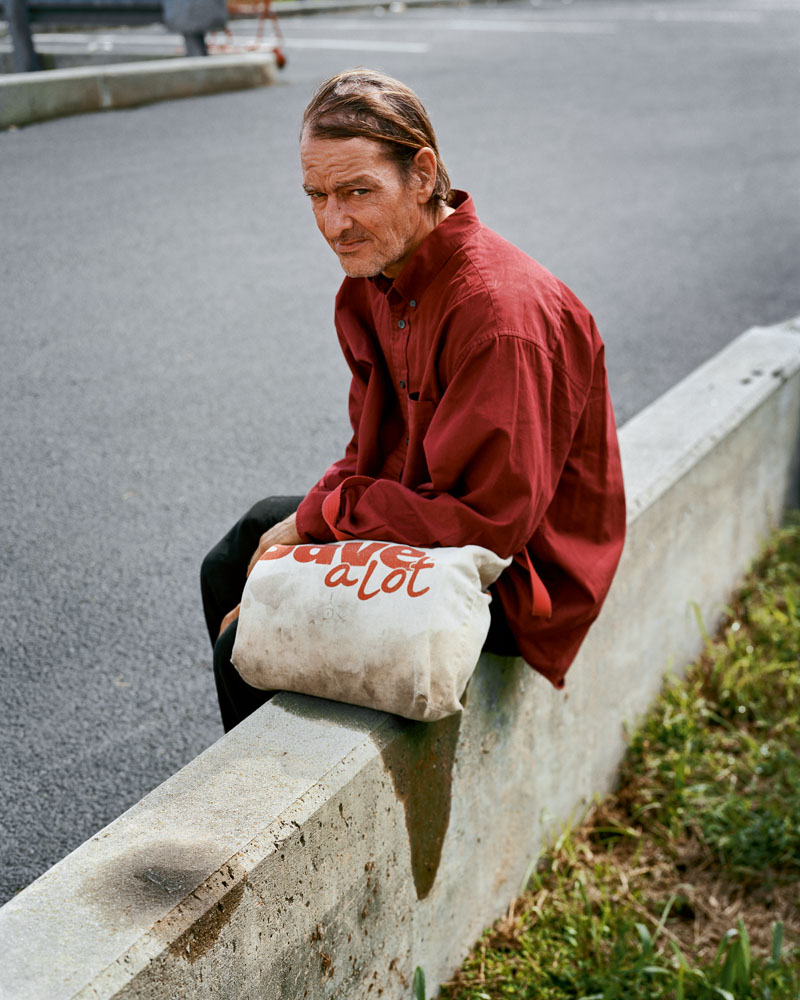
Shane Rocheleau, Martin, 2015
Jason What we’re talking about is the result of decades of propaganda—in making movies which extol the virtues of capitalism and in suppressing the voices of those who would try to spread any ideology other than predatory capitalism. And so the result is that in the United States today, if you express even minor questions about the way capitalism is implemented, you’ll be called a communist. It’s all or nothing. With us or against us. So in the face of this, it’s not surprising that people bind themselves in increasingly intricate layers of ideology that are often self-contradictory. This is something I explore in Knives, using both documentary and constructed imagery to draw lines between the real and the imaginary.
Shane So there are two imaginaries at play. The imaginary of the American dream is one system. And then the inability to look at the American Dream as an imaginary—because of their faith in it—creates a secondary series of imaginaries that these men are looking to in order to explain their condition—the conspiracy theories. Ultimately, though, their condition is really the result of Capitalism, that which breeds the first imaginary, right? Is that a bunch of gobbledygook?
Jason Sure, but I think there's something truthful in there, in that when you tell one lie, you have to tell more lies to support the first. We each live within our own constructed self-identity—and in the United States it seems that a large part of this is the need to exercise power over life and death, both in terms of our right to exercise violence within our borders, and also at a foreign policy level. Is this need to feel ultimate power borne of a lack agency and power in other aspects of our lives?
Shane Susan Faludi wrote a book called The Terror Dream, and I think that's one of her arguments—that the early Americans, the Puritans, leave England because they're being persecuted, they escape to New England, Virginia, Pennsylvania, and now they have the homestead to protect from either real or imagined threats from the natives; they arrived prone to persecution. And what are we scared of today? We’re scared of any and all proxies for the natives, supposed barbarians raping, stealing, killing our women and children. So what do we do in response to that fear, real or imagined? We compensate by literally or symbolically annihilating them. Trump uses this fear very well, exploiting that inherited fear his White base has of the other: Muslims, Mexican immigrants, and African-Americans.
Shane So there are two imaginaries at play. The imaginary of the American dream is one system. And then the inability to look at the American Dream as an imaginary—because of their faith in it—creates a secondary series of imaginaries that these men are looking to in order to explain their condition—the conspiracy theories. Ultimately, though, their condition is really the result of Capitalism, that which breeds the first imaginary, right? Is that a bunch of gobbledygook?
Jason Sure, but I think there's something truthful in there, in that when you tell one lie, you have to tell more lies to support the first. We each live within our own constructed self-identity—and in the United States it seems that a large part of this is the need to exercise power over life and death, both in terms of our right to exercise violence within our borders, and also at a foreign policy level. Is this need to feel ultimate power borne of a lack agency and power in other aspects of our lives?
Shane Susan Faludi wrote a book called The Terror Dream, and I think that's one of her arguments—that the early Americans, the Puritans, leave England because they're being persecuted, they escape to New England, Virginia, Pennsylvania, and now they have the homestead to protect from either real or imagined threats from the natives; they arrived prone to persecution. And what are we scared of today? We’re scared of any and all proxies for the natives, supposed barbarians raping, stealing, killing our women and children. So what do we do in response to that fear, real or imagined? We compensate by literally or symbolically annihilating them. Trump uses this fear very well, exploiting that inherited fear his White base has of the other: Muslims, Mexican immigrants, and African-Americans.
Maybe something like that is the connection you're outlining: our violence is compensatory. And we're compensating for fear—again, real or imagined. There's in small measures fears of real things there, but I think the fears are outsized in comparison to the actual threats, and that plays into how masculinity and the American dream are necessarily interlocked, because there's this inherent need to protect that dream; and who is protecting that dream? Those in power. Who's in power? White men. And that also ties in with why Mexicans and Muslims create a hyper-fear, because our culture is predicated on that connection between fear and violence, violence and masculinity, masculinity and power, power and whiteness, maleness, straightness, Christian-ness. And it feels like a loop.
But I think it’s worth noting that at no point in history has it been safer to be a human being.
Jason That's true. I read something fascinating the other day as part of the question of whether we should control
But I think it’s worth noting that at no point in history has it been safer to be a human being.
Jason That's true. I read something fascinating the other day as part of the question of whether we should control
access to things like assault rifles. A meme was going around saying that if we want gun control, just get Black people to buy a bunch of guns and they’ll be restricted within minutes. There’s some truth in that. Malcolm X made a speech in which he urged Black people, in the absence of protection from federal, state, and local police, to buy rifles and defend themselves at all costs, because this was a group that was regularly and constantly terrorized and had no expectation of protection from the law. Malcolm X was immediately arrested and questioned, and the interrogators, who of course were white, seemed to think that he was fomenting terrorism. And he said, you have the right to self protection; why don't I? It was such a clear, obvious idea. Malcolm X was appealing to people who actually have reason to fear for their lives, but who are also feared by their oppressors—their other.
Shane Right, subjugated by that other—doesn’t that come back to “inalienable rights”? Who do they apply to? Straight white Christian males. Definitely not Black men.
Shane Right, subjugated by that other—doesn’t that come back to “inalienable rights”? Who do they apply to? Straight white Christian males. Definitely not Black men.
So in the opioid crisis in this country, there's this interesting dynamic: it arises out of racism. So as you know, the crisis predominantly affects white demographics. Why is that? The crack epidemic of the eighties was a symptom of, amongst other things, poverty and resultant addiction. But it was largely isolated to Black communities. It’s easy for the white hegemony to prosecute the poverty and addiction of a minority community. And they did. A rich white lawyer found with cocaine still gets a slap on the wrist, whereas a poor Black man in a historically redlined community can still be reasonably certain of extensive jail time. That prosecution of Black communities for their addiction and poverty also served to reify racist ideas of African American inferiority, exclaiming that Blacks are predestined for addiction and poverty, right? Fast forward a decade or two, and doctors are not prescribing opioids to their Black patients at nearly the same rates as to their white patients. So now, because of this racism, the opioid crisis is affecting predominantly white communities.
But how are we responding to the opioid crisis? If it were a crisis predominantly affecting the Black community, of course we’d be incarcerating, right? But since it affects predominantly white communities there’s now a national dialogue about how to treat addiction as opposed to punishing it.
Jason Absolutely, yes. As I was making some of the last photographs for Knives, specifically a woman and her newborn child, I asked her what was going on that night because it seemed exceptionally busy with ambulances and police cars. She said, oh, it's overdoses. And it’s happening every night of the week.
Jason Absolutely, yes. As I was making some of the last photographs for Knives, specifically a woman and her newborn child, I asked her what was going on that night because it seemed exceptionally busy with ambulances and police cars. She said, oh, it's overdoses. And it’s happening every night of the week.
The following day I spoke to a cop who said that now that they have Naloxone available in our cars, they are resuscitating overdose victims and then seeing them again a week later, repeating the same mistake. We continue to give the gift of life back to whites who seem committed to taking their own. It's hard to say these things without sounding judgmental — but if I think of times in my life where I made a nearly fatal mistake, I learned not to repeat that mistake. But I’m aware that my own privilege as a white male has enabled me to learn from these mistakes without consequences like incarceration, for instance.
And so it’s unsettling to me that we penalize Black people for drug problems, but we don’t seem to be as committed to incarcerating white people for the same acts. Is that in part because heroin is not a prescription drug and oxycodone is? I've been trying to discern what's more prevalent these days, prescription-type overdoses or heroin-type overdoses.
And so it’s unsettling to me that we penalize Black people for drug problems, but we don’t seem to be as committed to incarcerating white people for the same acts. Is that in part because heroin is not a prescription drug and oxycodone is? I've been trying to discern what's more prevalent these days, prescription-type overdoses or heroin-type overdoses.
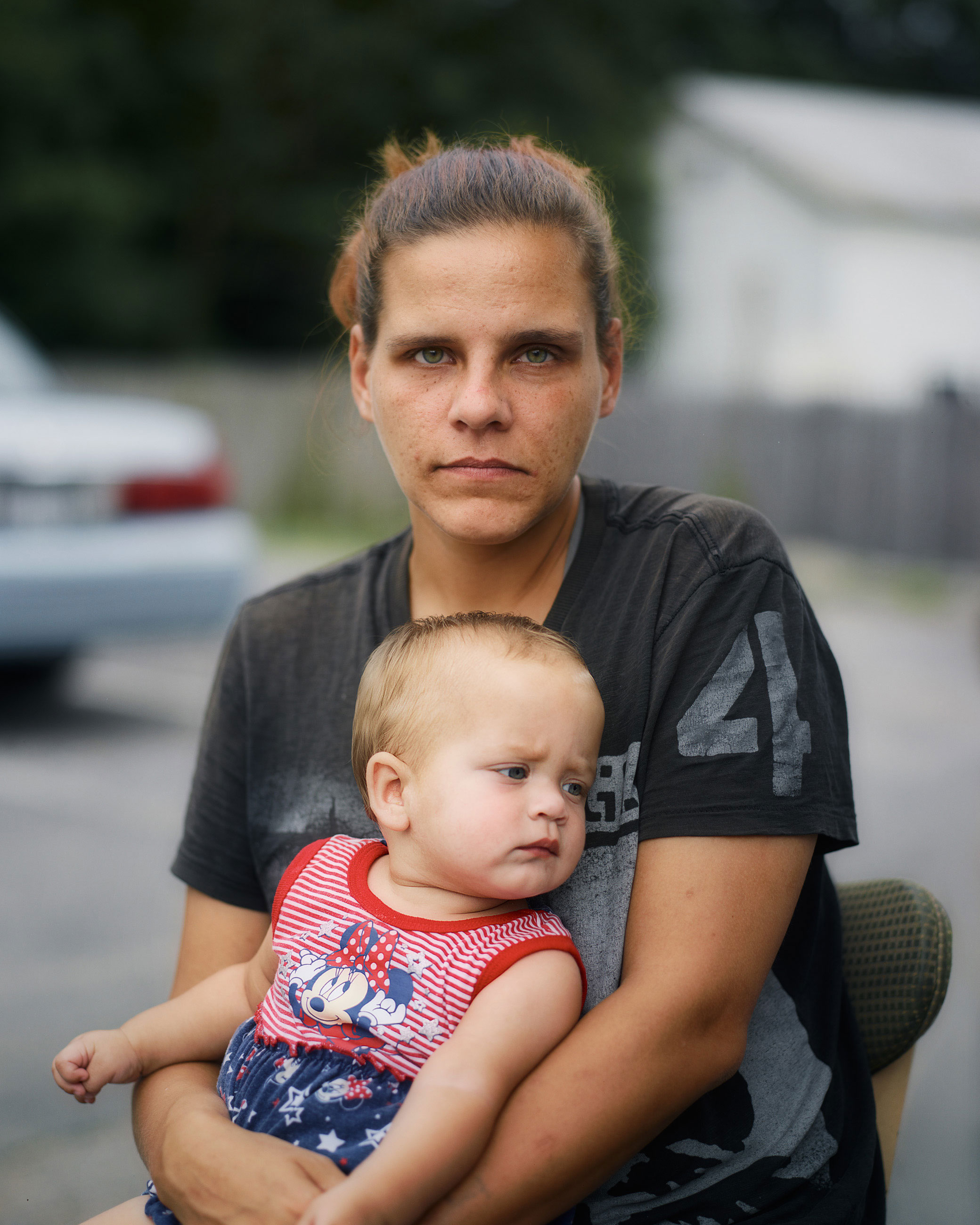
Jason Koxvold, Untitled, Ellenville, NY 2017
Shane They are related. They're all opioids, right? So it all comes down to availability and price. Heroin is less expensive than Black market prescription opioids. So you’re prescribed an opioid and for any number of environmental or genetic reasons you become hooked. Your community has been affected by the opioid crisis, so there's more availability. But over time, it becomes too expensive and so you graduate to less expensive heroin. On the supply side, dealers are looking for a better margin, so they cut the heroin with fentanyl, which is many orders of magnitude stronger and also less expensive. So many of the overdose deaths are a result of fentanyl.
This is all a long way of saying that if you’re white—especially white, male, Christian, and straight—there are different, more slippery rules dictating your behavior, an imaginary built just for you—for us. Literally for you and me. Like you, I’m profoundly privileged.
My book is an attempt to challenge the imaginary that has been bestowed upon me. To challenge that I'm entitled to my power, that I am entitled to violence. I've been entitled to engage in contradiction without needing to justify it, and I’ve been largely ignorant that this country is predicated on these contradictions. We fight for freedom while stealing freedom. Something's been bestowed upon me that I'm just no longer comfortable with. But unlike Knives, YAMOTFABAATA isn’t at all documentary, at least not in any conventional sense. I think of it more as a poem, abstract and open. It’s more an expression of the liminal psychic space inherent to an identity crisis than a document of my privileged position. But very real symbols of that position are still in there.
This is all a long way of saying that if you’re white—especially white, male, Christian, and straight—there are different, more slippery rules dictating your behavior, an imaginary built just for you—for us. Literally for you and me. Like you, I’m profoundly privileged.
My book is an attempt to challenge the imaginary that has been bestowed upon me. To challenge that I'm entitled to my power, that I am entitled to violence. I've been entitled to engage in contradiction without needing to justify it, and I’ve been largely ignorant that this country is predicated on these contradictions. We fight for freedom while stealing freedom. Something's been bestowed upon me that I'm just no longer comfortable with. But unlike Knives, YAMOTFABAATA isn’t at all documentary, at least not in any conventional sense. I think of it more as a poem, abstract and open. It’s more an expression of the liminal psychic space inherent to an identity crisis than a document of my privileged position. But very real symbols of that position are still in there.
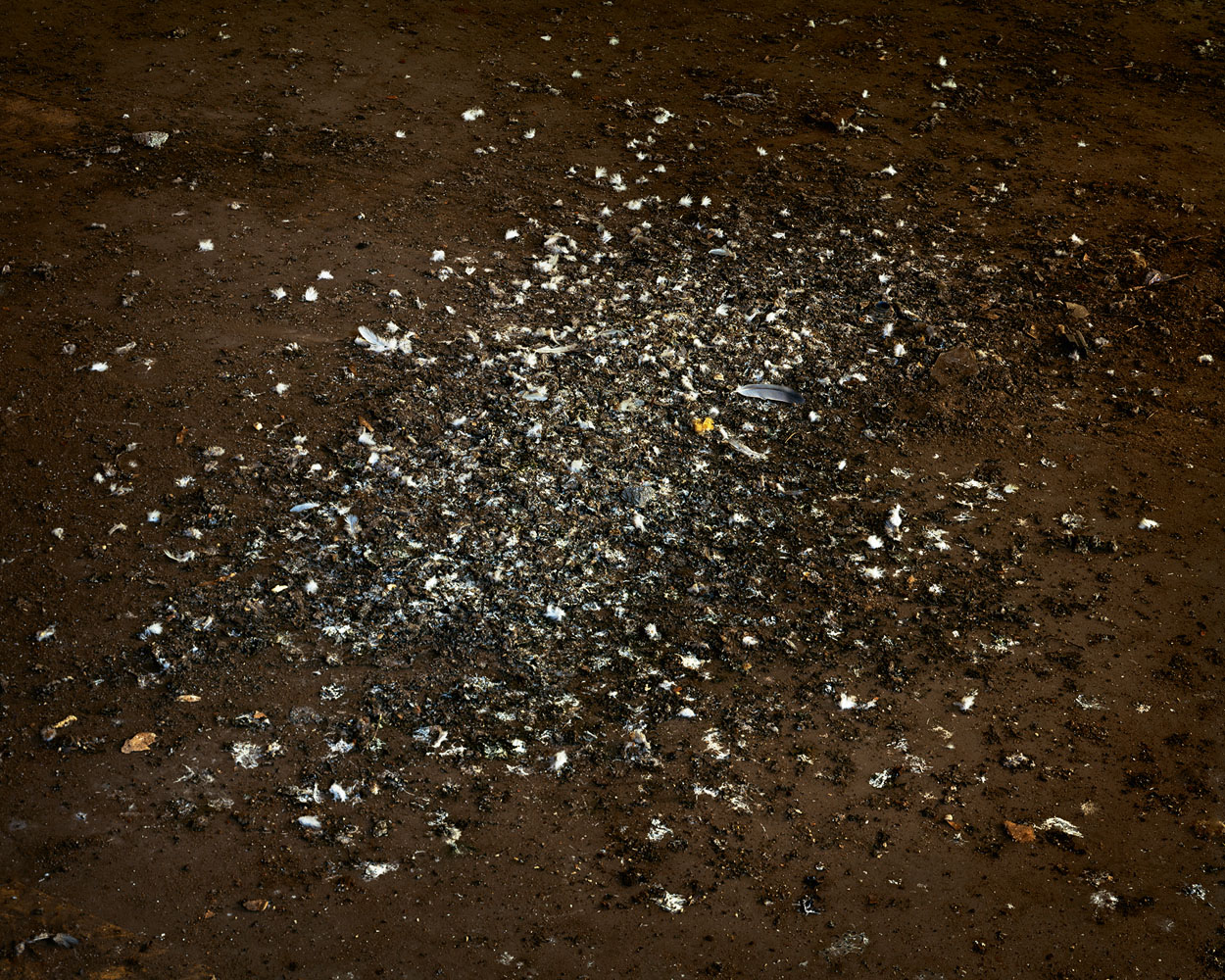
Shane Rocheleau, An Index of Birds, 2016
Jason Right. We’re talking about this sense that even as white men start feeling the discomfort of our slipping position in the world, which is essentially just the leveling of that playing field, I think a lot of people struggle with the idea that in leveling the playing field, you’re making it less easy or less fair for me—any time you take something away from someone, it feels like a theft or loss.
I hear this a lot—people wondering why Blacks and women have all the advantages. A USMC scout sniper recently told me, if you want to make a lot of money as a defense contractor, first make sure that you’re female and Native American. He’s referring to DoD procurement guidelines aimed at leveling the playing field. But if you look at the CEOs of all the defense contractors—the Boeings, Lockheeds, Raytheons, DynCorps and so forth—they're all white and mostly male. So even though white men may feel disadvantaged, it’s fair to say that this is empirically not the case.
I hear this a lot—people wondering why Blacks and women have all the advantages. A USMC scout sniper recently told me, if you want to make a lot of money as a defense contractor, first make sure that you’re female and Native American. He’s referring to DoD procurement guidelines aimed at leveling the playing field. But if you look at the CEOs of all the defense contractors—the Boeings, Lockheeds, Raytheons, DynCorps and so forth—they're all white and mostly male. So even though white men may feel disadvantaged, it’s fair to say that this is empirically not the case.
Shane That's interesting, right? At the top we don't see a major shift in the relative demographic of those in power; it’s the middle that’s shifting. White men have not shifted their understanding that they should be in power because those in power are still white men, but in the trenches of middle class man’s day to day existence that shift is palpable. White men have to share power. Women and minorities have a say, even if still not enough of one. While angry white men anger me a great deal, I’ve got to try to empathize with these dudes, right? And I’m almost embarrassed to admit that, as a white dude myself, I experience some of this discomfort. The disconnect between a stable top and an unstable middle has to be really scary and confusing. The example at the top recommends that white men should be in power, but then, for instance, once the industry that maintained your high quality of life in your respective town moves overseas, what’s available then to a man whose identity is predicated on traditional myths and narratives of masculinity and power? As you said earlier, I think this is where we, as parents, need to very directly challenge those myths and narratives. I’m not sure I can change my dad’s mind, but I can sure try to give my daughter alternatives and choices.
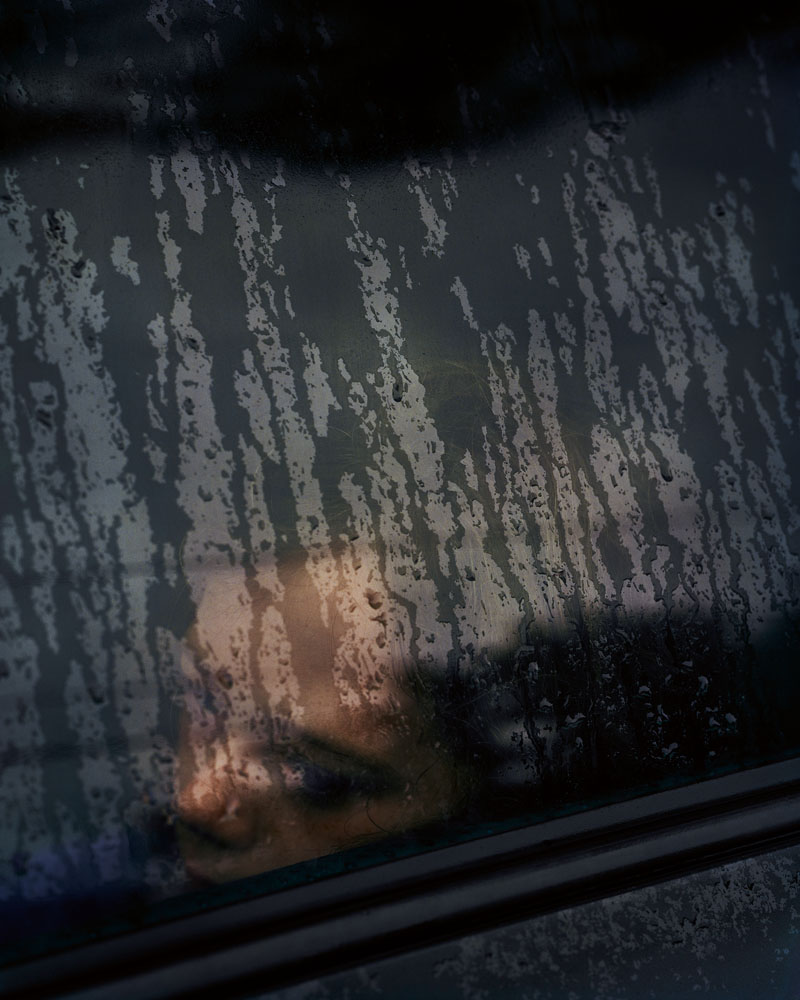
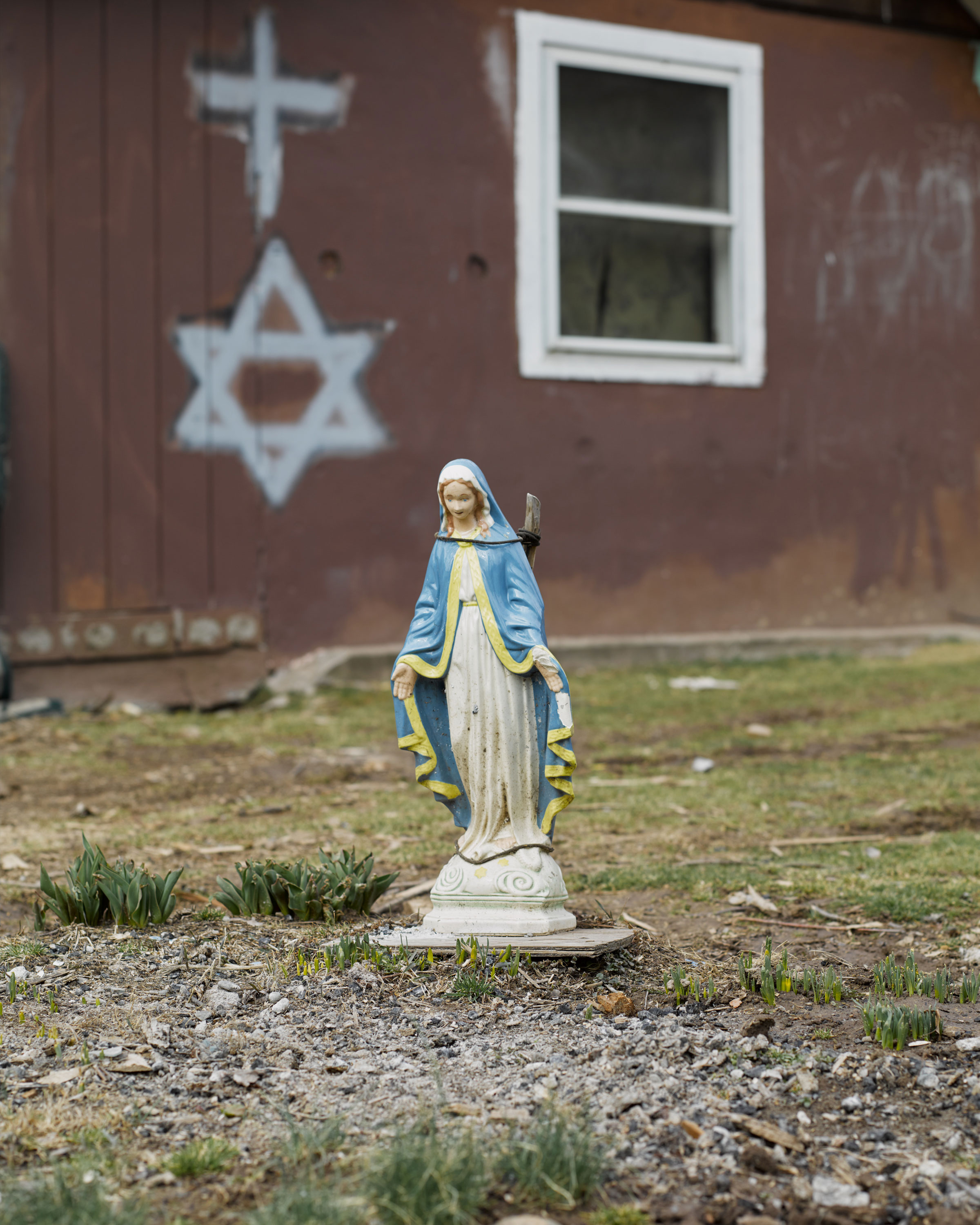
(from left) Jason Koxvold, Untitled, Napanoch, NY 2016; Shane Rocheleau, Untitled, 2017
Jason Is it fair to say that the reason you chose to end YAMOTFABAATA with a photograph of your daughter, Mardi Belle, was the same reason I chose the photograph of the homeless mother in Wawarsing and her two month old baby girl as my penultimate image? It’s a bitter pill to swallow. Your final photograph might be more optimistic than mine.
Shane All fair to say.
Shane All fair to say.
︎
Shane Rocheleau was born in Falmouth, Massachussetts in 1977. He received his BA (1999) in Psychology and English from St. Michael’s College in Vermont, a Post-Baccalaureate Cerificate (2005) in Fine Art from Maryland Institute College of Art, and his MFA (2007) in Photography and Film from Virginia Commonwealth University (VCU). He currently lives and works in Richmond, Virginia, where he serves as an Adjunct Assistant Professor at VCU. In Spring, 2018, Gnomic Book published his first monograph, You Are Masters Of The Fish And Birds And All The Animals.
Jason Koxvold was born in Liege, Belgium in
1977. He received his BSc in Social Science from the University of Edinburgh, Scotland in 2000. His fne art practice focuses on the shared spaces between neoliberal economic policy and military strategy; he has made work in diverse locations, from Afghanistan to Nigeria, Arctic Russia to South Africa. His frst monograph, Knives, was published in 2017 by Gnomic Book. Koxvold has exhibited in the United Stated, Britain, France, and Japan. He currently lives and works in Upstate New York and Brooklyn.